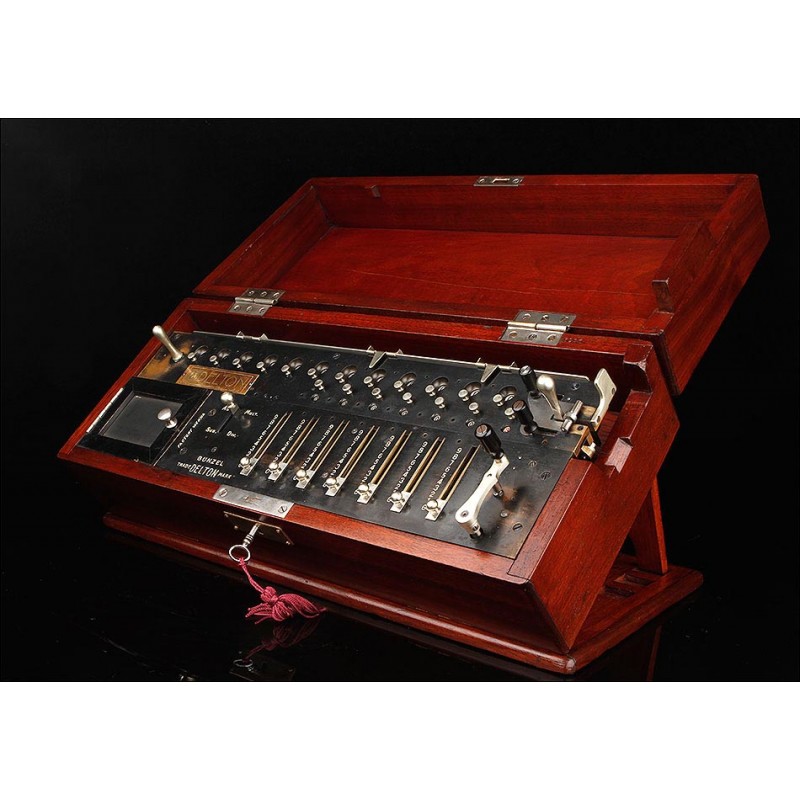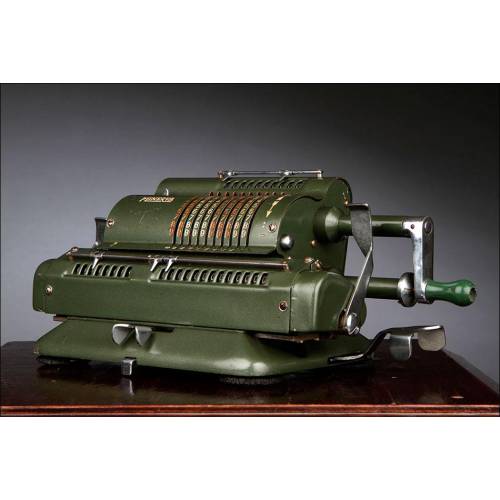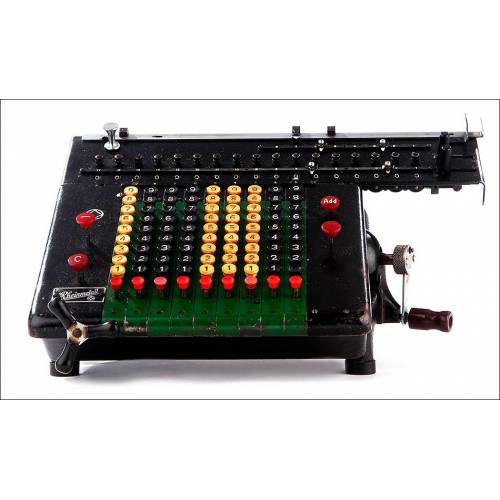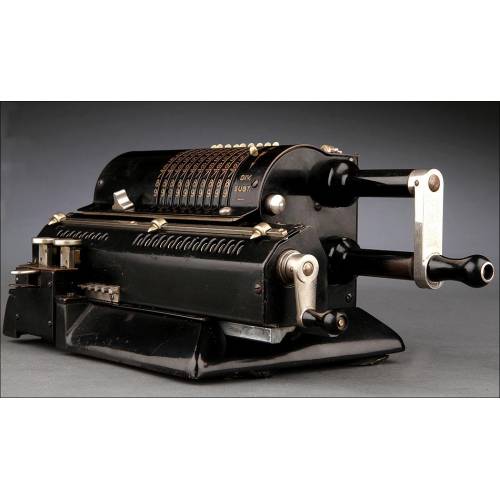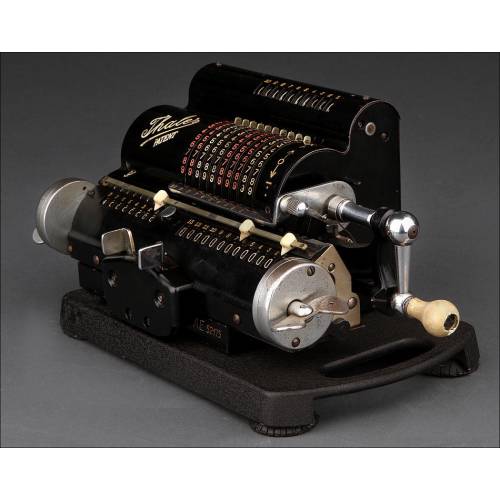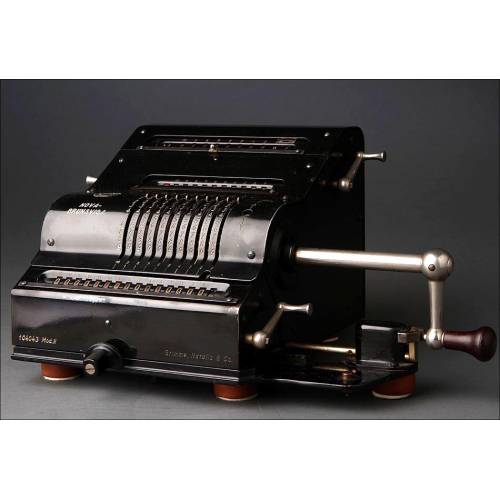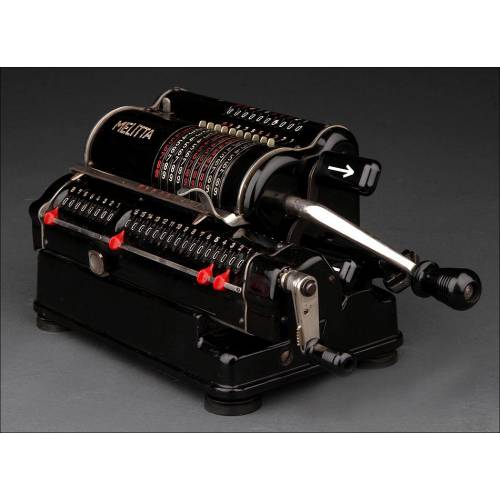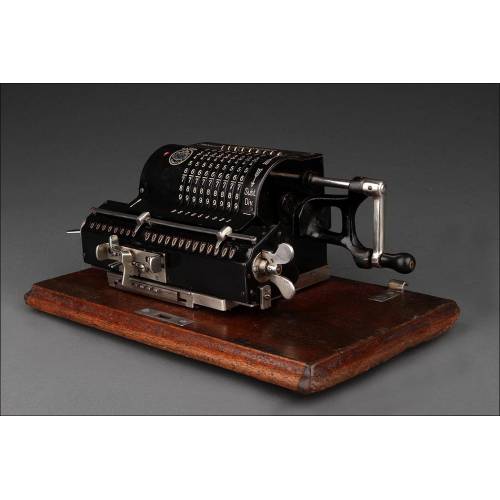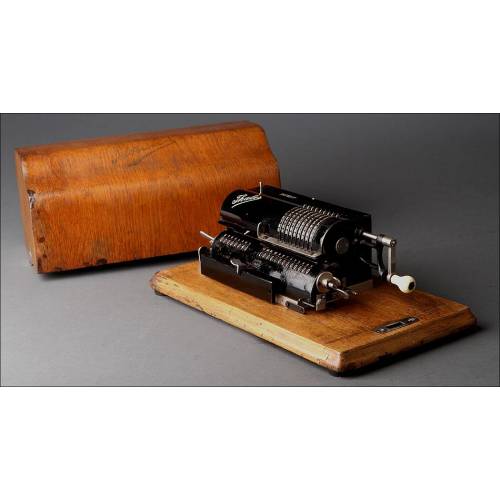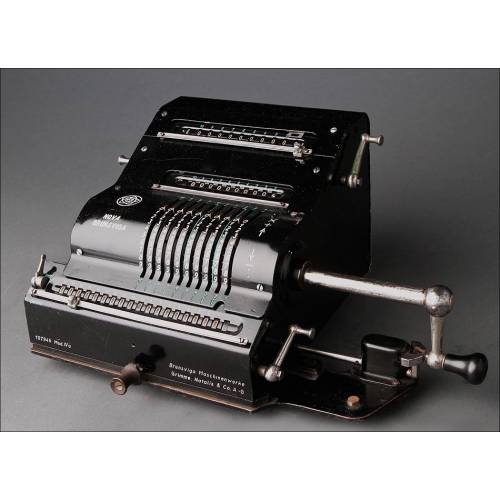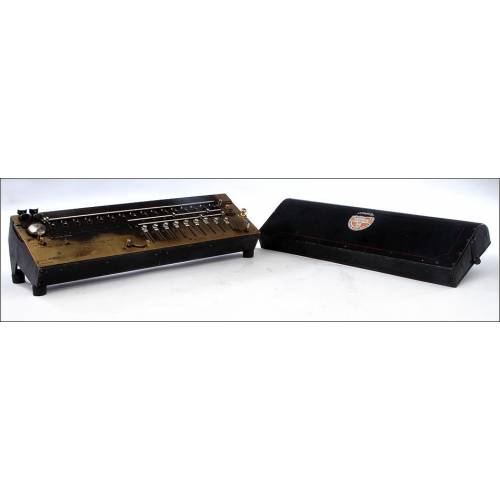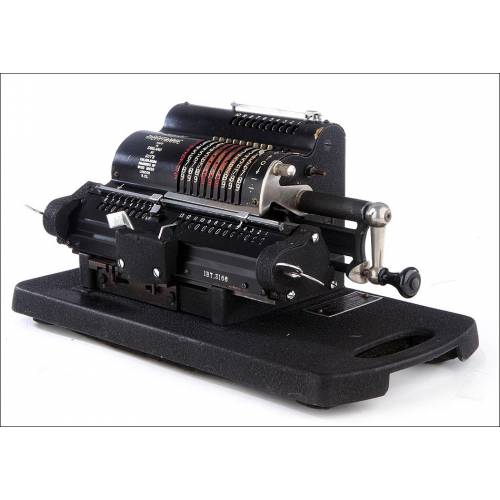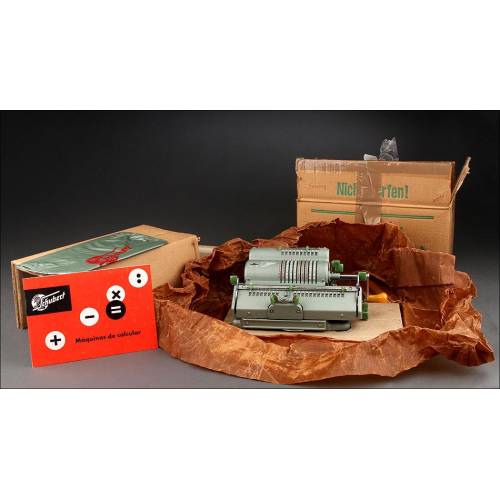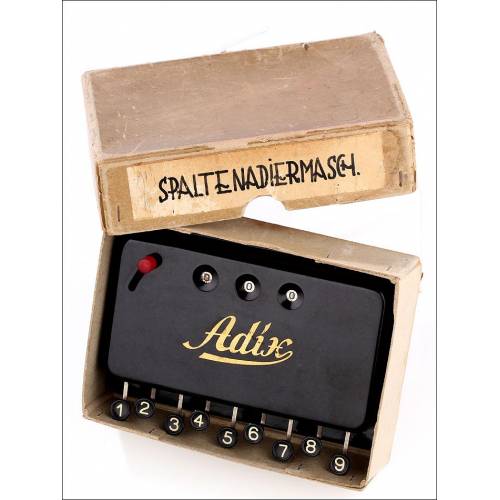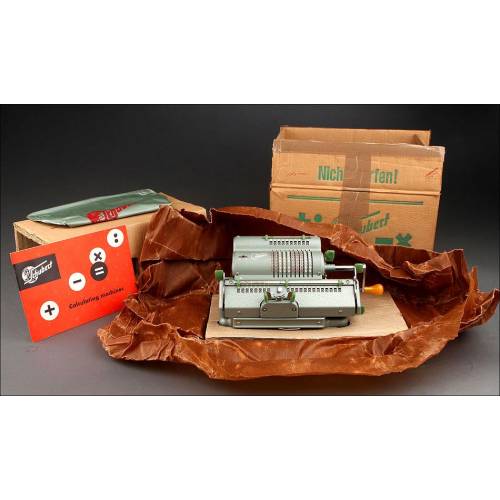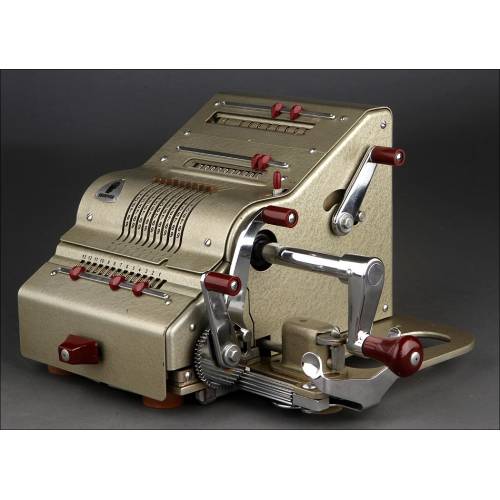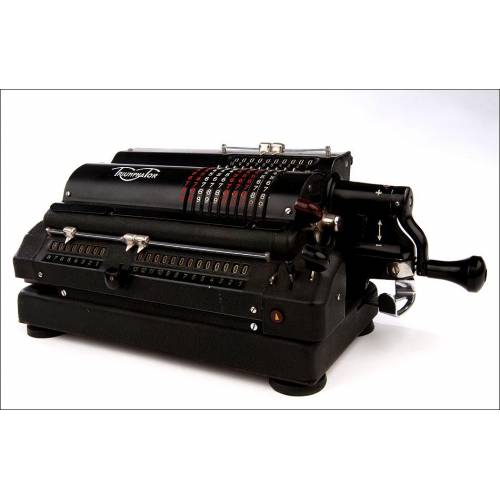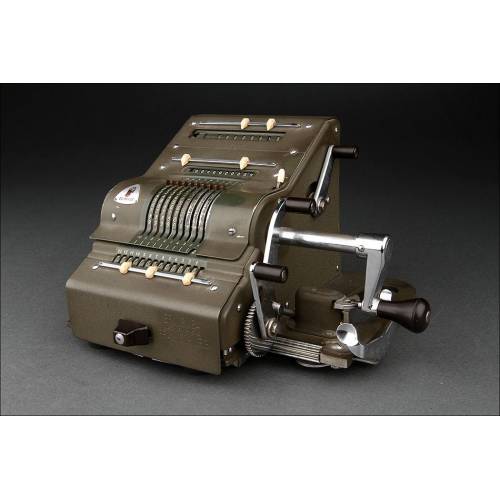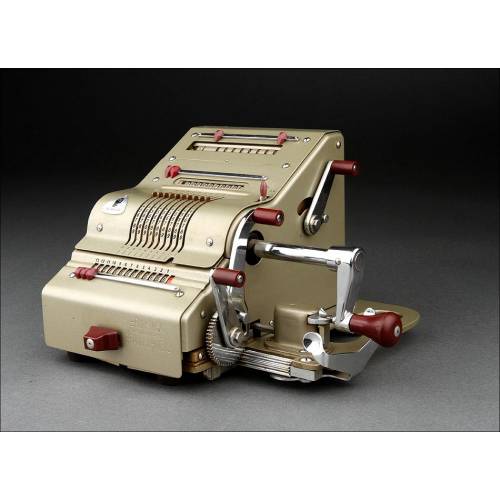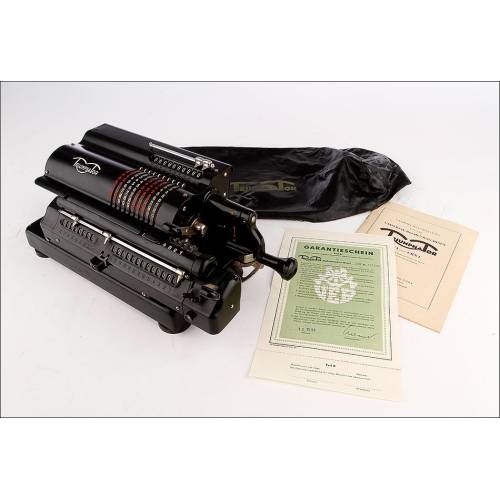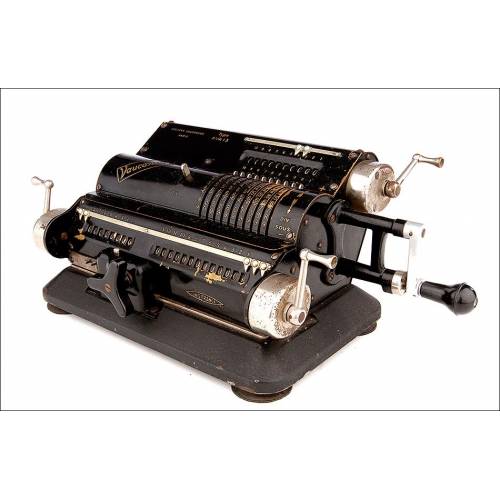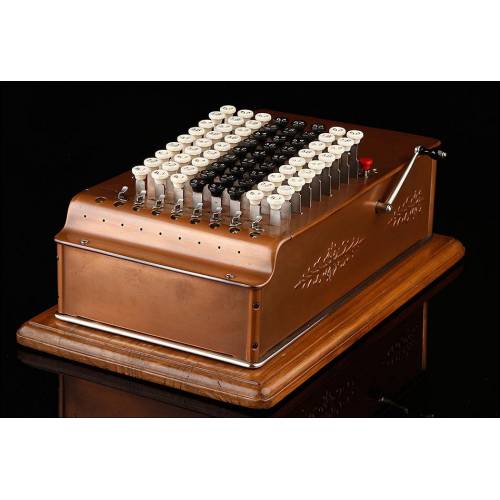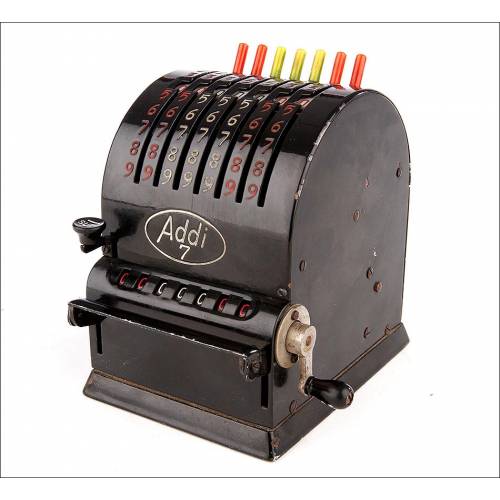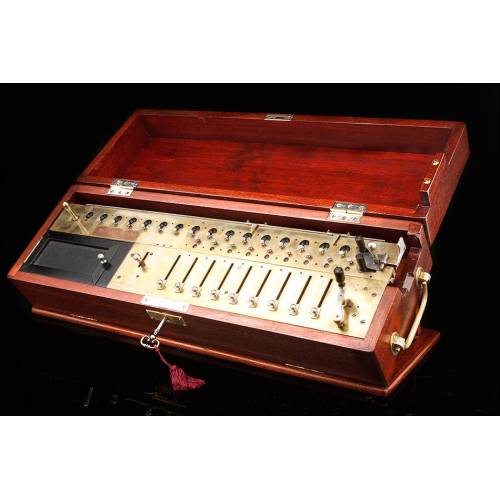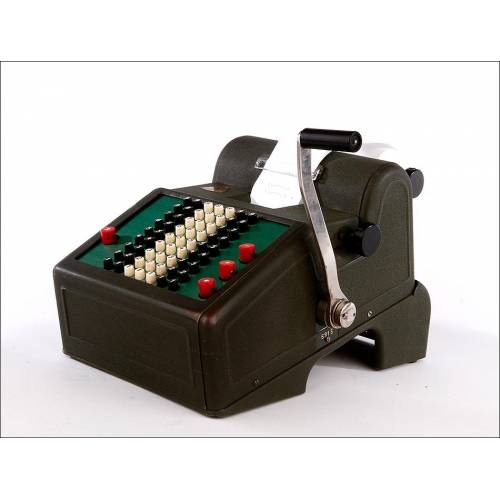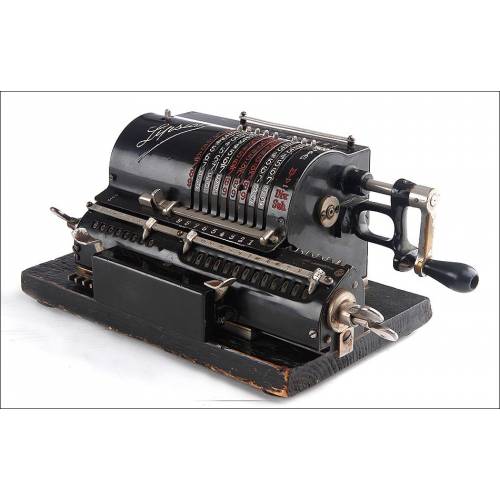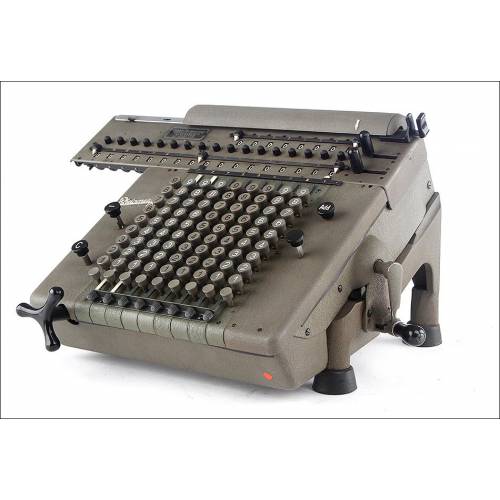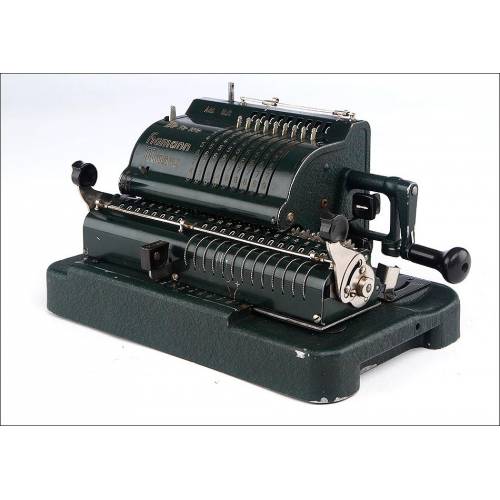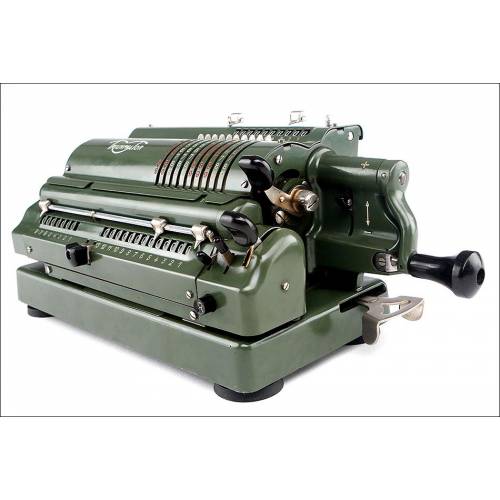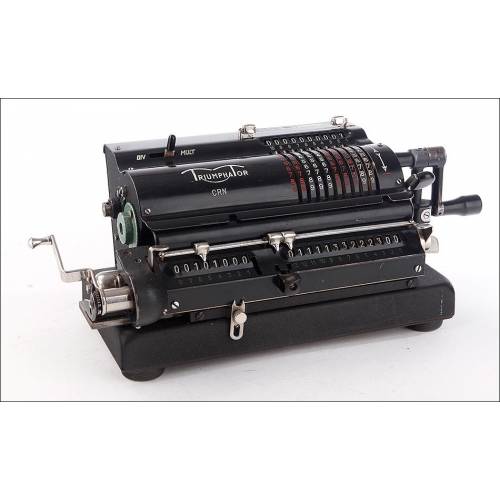A-517
Fantastic Bunzel-Delton Arithmometer in perfect working order. Austria, 1909. Original Case
Impressive Bunzel-Delton arithmometer made in Austria in 1909. Original case.
Sold!
This attractive calculating machine is an arithmometer from the early 20th century, in good condition and perfect working order. It comes from Austria, where it was manufactured by Bunzel-Denton in 1901. This article is a real museum piece, an instrument that can perform the four basic arithmetical operations (addition, subtraction, multiplication and division). The arithmometer comes in its original case, made of solid mahogany wood. The case keeps the original lock and also the key in working order. The wood has been restored and boasts a flat and shiny finish.The arithmometer we can see in these images is a model made in Vienna by the Bunzel-Delton-Werk Fabrik Automatischer Schreib. The machines design was developed by Hugo Bunzel, a calligraphy teacher and former painter born in Prague. The machine was introduced in 1908 and kept on being produced through 1915. This kind of arithmometers work with a digital mechanical calculating system, the step reckoner or stepped reckoner, invented by German mathematician Gottfried Wilhelm Leibniz around 1672 and completed in 1694. The system could perform basic arithmetical operations and even complex ones, such as square roots.This particular instrument has survived to our days in good conditions and works wonderfully, fluidly and softly. The black paint that cover the metal surface is slightly worn in some parts, but it is generally well preserved. As stated before, the arithmometer comes into a fine mahogany case. To operate it there is no need to remove it from its case: the box has a small device intended to release a foldable leg that turns it into a useful stand. Inside the box, just by one of the metal hinges we can see the serial number 5290 engraved in the wood.Any lover of vintage machines will become fascinated by this rare arithmometer from the early 1900, an item that can still perform arithmetical operations with accurate results.Measurements (closed): Width: 490 mm. Height: 250 mm. Depth: 200 mm.

